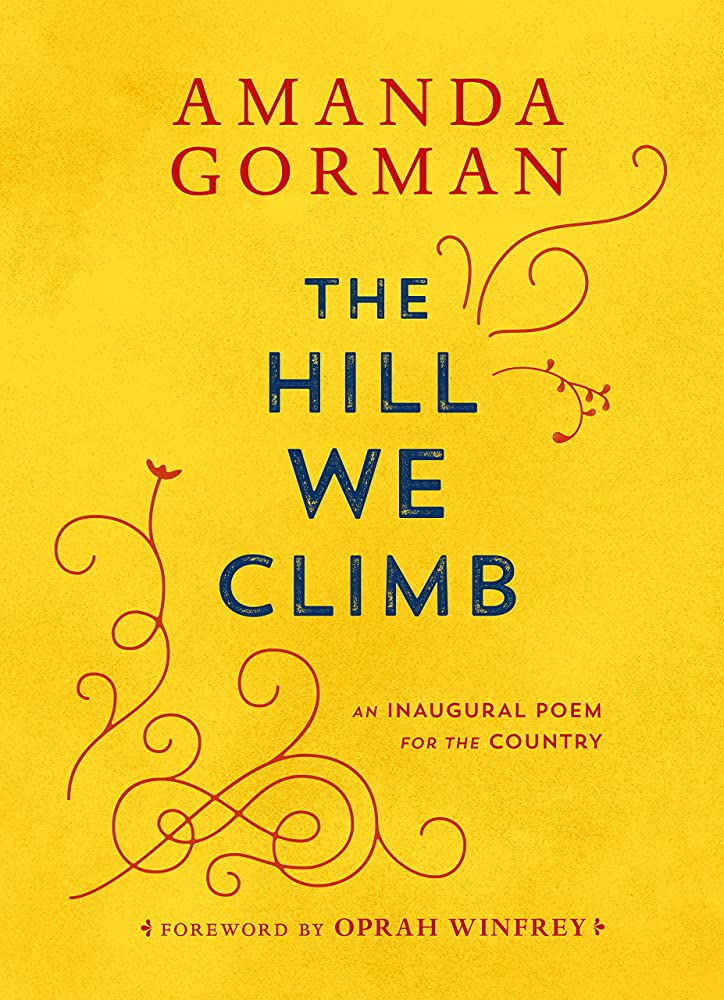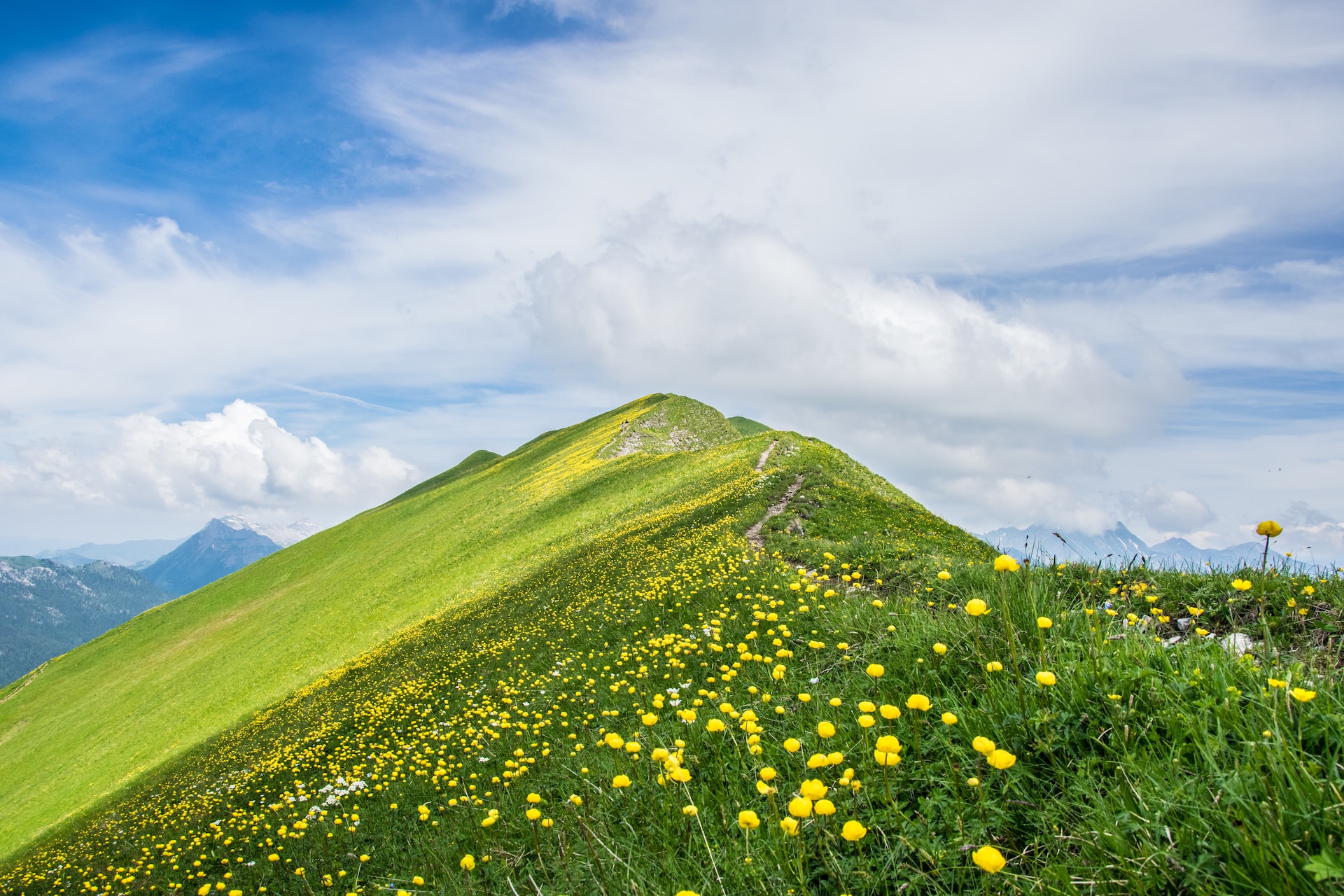by Em Matisons

At the 2021 inauguration of the 46th President of the United States of America, Joe Biden, one would expect the swearing in of the man himself to be the most notable moment of the ceremony. However, for me and for millions around the world, this was not the case. A young Black woman, Amanda Gorman, the first to be named the National Youth Poet Laureate, took center stage as the youngest inaugural poet in history, and graced the world with her words.
Prior to the inauguration Gorman spoke of her hopes for her poem to “represent a moment of unity for our country.” Llittle did she know that for five minutes the people of the world would collectively hold their breaths as she shared an emphatic reading of her poem “The Hill We Climb.” Gorman’s performance was mesmerizing and, potentially providentially, as of March 2021, the world has access to her words in book form so they can be gifted, reread, and held close.
The Hill We Climb debuted at number one for The New York Times, USA Today, and countless other publications all of which contribute to Gorman’s seemingly exponential list of accolades. Let’s be honest:, if Oprah Winfrey is writing your foreword, you’ve clearly done something right. As Oprah writes, Gorman’s words “washed over us, they healed our wounds and resurrected our spirits.” In a time where wounds were aplenty and spirits were disconnected, Gorman’s poem was, and is, a call to courage that arms the consumer with hope:
So once we asked: How could we
possibly prevail over catastrophe?
Now we assert: How could catastrophe
possibly prevail over us.
Written amidst the breakout of the COVID-19 pandemic and the civil rights movement following the murder of George Floyd, Gorman explores her nation’s history, its democratic discordancy, the way things were, and the ways things could be under unity. “We’ve learned that quiet isn’t always peace” speaks loudly amongst the isolation of 2020/21 but, perhaps in even stronger tones, also of the chaos, injustice, and harm that can be caused through the acts of by-standers. To stand by in silence and watch as harm is caused, to see something and think it is not right but to not speak up, to avoid garnering attention so as to keep the peace, we must ask ourselves who’s peace are we keeping? Is it only our internal peace? Our comfort? Some people aren’t afforded that comfort, purely because of who they are or what they look like, so it becomes the role of the comfortable to get loud and join the discomfort, to share the peace. A truth that is brought home through Gorman’s call for love to become our legacy:
We close the divide,
Because we know to put
Our future first, we must first
Put our differences aside.
A pre-performance routine of Gorman’s is to recite the passage: “I’m the daughter of Black writers. We’re descended from freedom fighters who broke through chains and changed the world. They call me.” While her poem does speak of the broader world around us, we see her personal story glimmer when she speaks of “a skinny Black girl, descended from slaves and raised by a single mother” who dreams of becoming president, and every word thereafter. I come from a privilege that was handed to me at birth and I grew up with minimal education about any history but my own. It is through the shared art of diverse creators like Gorman that I am able to see into the personal experience of those our society has not favored and to understand my role in their history and our future.
The Hill We Climb is ridden with evocative statements about what it means to be an American, what it means to be alive. It draws focus to erroneous disparities and counters them with hopeful calls to action. It encourages us to march forward and to seek not to return to normal but to write a new story, one where everyone has a voice. It speaks of history as if it is a genetic code we inherit and carry with us, a weight that is heavier for some. It inspires us to ensure we take this inheritance, learn from it, repair what we can, and give the next generation “a country better than the one we were left.” For, if we don’t, our inertia becomes their burden:
And so we lift our gazes not /
To what stands between us, /
But what stands before us.
Gorman will undoubtedly be the Audre Lorde and Phillis Wheatley of her generation, inspiring all youth, but particularly Black women, to take up their pens and write about what they see, what they hear, what they experience. She inspires them to write about who they are, how the world is, and what they hope it to become. In fact, Gorman has frequently expressed her interest in running for president in 2036 and, well, one can’t help but think America, “a nation that isn’t broken, but simply unfinished,” would be safe in her hands. She has already shown us that she is brave enough to be the light that shines in our never-ending shade. Now it’s up to us to be brave enough to see it.
Em Matisons is an Australian freelance reviewer, and amateur poet, who loves to experience the arts, whether they’re in written form, on screen, or on stage. She was crowned the winner of the National Campus Writing Competition in 2019 for her poem “The School of Lost and Found.”



Add your first comment to this post